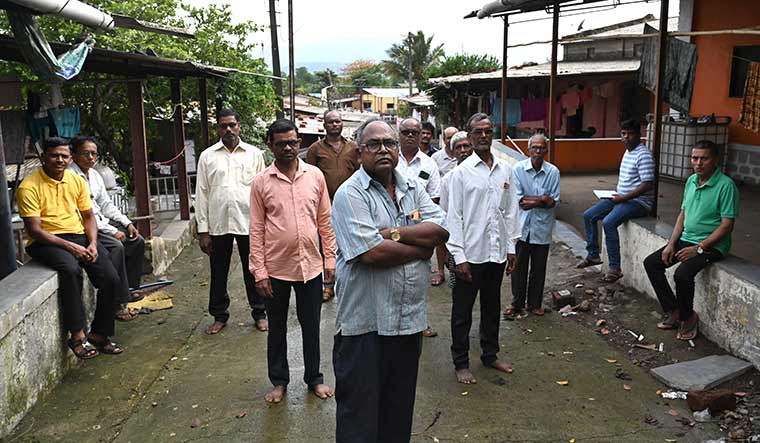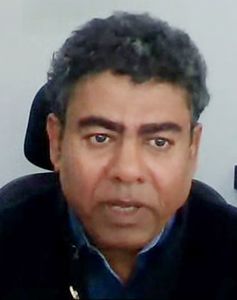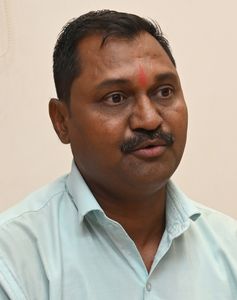Is Maharashtra Chief Minister Eknath Shinde turning a blind eye towards an alleged land grab at Zadani, some 35km from his native village Dare Tamb? The picturesque forest region in Satara district is fast becoming the epicentre of a major controversy.
Activist Sushant More, who is part of the Save Sahyadri campaign, said more than 620 acres of forest land in the Sahyadri Tiger Reserve near the Koyna dam was purchased by senior Indian Revenue Service officer and principal GST commissioner of Gujarat, Chandrakant Valvi, and a group of people associated with him, in blatant violation of various laws. Sushant told THE WEEK that Valvi and his associates bought the land at throwaway prices―Rs10,000 to Rs15,000 per acre. “They misled local people by telling them that the government was going to acquire land for an upcoming project and that they would lose the land anyway, and coerced them into selling,” said Sushant.
After Shinde became chief minister, he took steps to improve tourism facilities in the region. Subsequently, many outsiders bought land in the area. Sushant paid a visit to the region to know more about the land deals. “I was told that the entire people of Zadani were resettled in Khalapur in Raigad district when the Koyna dam was built in 1962. At present, no one lives in Zadani, but the resettled families continue to own their ancestral land there,” said Sushant.
The relocated villagers in Khalapur told Sushant that they were coerced into selling their land by a few agents who told them that the government was going to acquire their land. “More than 50 landowners were tricked into selling their land by way of powers of attorney. These deals took place from 2002 to 2007. Now a resort is being constructed there and eight rooms are built already,” said Sushant. “Valvi and other owners are not allowing original landowners even to perform monthly pujas at their ancestral temple in Zadani.”
Sushant said construction work was going on without required permissions from local authorities. “Workers are living on the site. They have got electricity connection from the Maharashtra State Electricity Distribution Company. This is surprising because the neighbouring villages still do not have electricity. How did a village without any inhabitants get power supply? It is a clear case of revenue and forest officials colluding with Valvi and others. The government should demolish the construction and take back the land,” said Sushant.
 Victims and woes: Manaji More, whose 21 acres were purchased at a rate of Rs15,000 per acre in 2010, with other villagers | Amey Mansabdar
Victims and woes: Manaji More, whose 21 acres were purchased at a rate of Rs15,000 per acre in 2010, with other villagers | Amey Mansabdar
Zadani villagers told THE WEEK that when they sold their land they were assured that they would be allowed to retain three or four acres and that they would be allowed to visit the village and conduct puja. Manaji More, whose 21 acres were purchased at a rate of Rs15,000 per acre in 2010, said the administration colluded with the buyers to dupe the villagers. “There were two agents, Sanjay More and Anand Shelar, who came on behalf of the buyers. I was among the last to sell my land. I got paid only for 18 acres as they said the remaining three acres would remain with my family. But now, I have lost all my land,” said Manaji.
Some of the More families―a prominent clan in the region―had been paying gharpatti, a cess collected by the local panchayat for houses, till last year, but are unable to access their land. Vilas More, a member of village panchayat, said they would take Valvi and others to court. “All of us want our three-four acres back. Valvi should not block us from going to our village. The Satara district administration has found out that he has violated the Maharashtra Land Ceiling Act. We want the government to return the land to us,” said Vilas.
The villagers said Sanjay More, the main agent, was close to the chief minister. So they are not sure whether any action will be taken against him. “Some of us are also related to Shinde. We hope he gives us justice,” said Manaji.
Reaching Zadani is not easy. From Satara, one has to travel to Bamnoli and then take a boat across the Koyna reservoir. On the other side of the reservoir is Dare Tamb. The next stop is Uchat, some 35km away on a hilly road. Zadani is an hour’s trek from Uchat.
People living in the area belong mainly to the Maratha and the Dhangar communities. Their ancestors served in Shivaji’s army. During Shivaji’s initial days as a Maratha warrior, the region was part of the jagir of the Mores of Javali, who were the local commanders of Adil Shah of Bijapur. Shivaji defeated Chandra Rao More of Javali and Afzal Khan of Bijapur and annexed the region. The Mores then joined the ranks of Shivaji’s commanders. Remains of one of Chandra Rao’s mansions can still be seen near Zadani.
In the 1960s, the Maharashtra government acquired vast tracts of land in the region for the Koyna dam. After a major earthquake in 1967, the relocation process gathered momentum. The affected villagers were resettled in Pune, Raigad and other districts. Those who did not want to relocate moved up the hill and continued to live in the Shindi-Kandati region. THE WEEK had done a story in 2000 on the plight of people who continued to live there for want of proper rehabilitation policies and how they were cut off from the world during monsoon as the only way to access the region was crossing the reservoir on a boat.
Since he became a minister and then chief minister, Shinde has focused on developing the region. He commissioned two bridges so that people don’t have to depend on boat services during monsoons. During the Congress-NCP government’s time, an influential NCP minister tried to develop the region as a playground for the rich and famous of Mumbai and Pune. The plan flopped because the Central government set up the Sahyadri Tiger Reserve Project in 2008.
Satara district collector Jitendra Dudi confirmed that the allegations about the land grab were true, but he did not offer any further information. Dudi has launched an inquiry into the land deals and issued notices to Valvi, and two more accused, Anil Vasave and Piyush Bongirwar, son of retired Maharashtra chief secretary Arun Bongirwar, asking them to present themselves before him on June 11. The trio sent their lawyer, who asked for more time to submit the relevant documents.
Satara additional collector Jivan Galande said that under section 44 of the land ceiling act, the people to whom notices had been issued should furnish all relevant documents personally. “They cannot send a lawyer on their behalf. So Valvi and others have been given two weeks more. They will have to present themselves on July 3,” he said. “Prima facie, it appears that they have violated the laws, and if the inquiry confirms the finding, then the land found in excess of the ceiling limitation (54 acres) will be taken over by the government.”
When THE WEEK met Valvi at his office in Ahmedabad, he said he owned only 76 acres. “I am not constructing any resort. As an IRS officer, the details of my assets and land purchases have been submitted to the concerned government department long ago,” Valvi said.
Valvi, who belongs to a tribal community in Maharashtra’s Nandurbar district, bought the land in Zadani before the area was notified as part of the Sahyadri tiger project, said sources close to him. Since nobody was living there, a member of the More clan approached Valvi and told him that many villagers wanted to sell their land. They were reportedly paid the prevailing market rates. There was no coercion, said the sources. Valvi wanted to buy 103 acres, but settled for 76 acres as he could not raise enough money.
But the deal clearly seems to be running into trouble. As the inquiry by the revenue department progresses, Shinde has indicated that strict action will be taken against anyone found guilty. During his recent visit to Dare Tamb, Shinde told journalists that an inquiry was on. “We will get to the root of the issue,” he said. “We will destroy any illegal construction and punish the guilty.”




